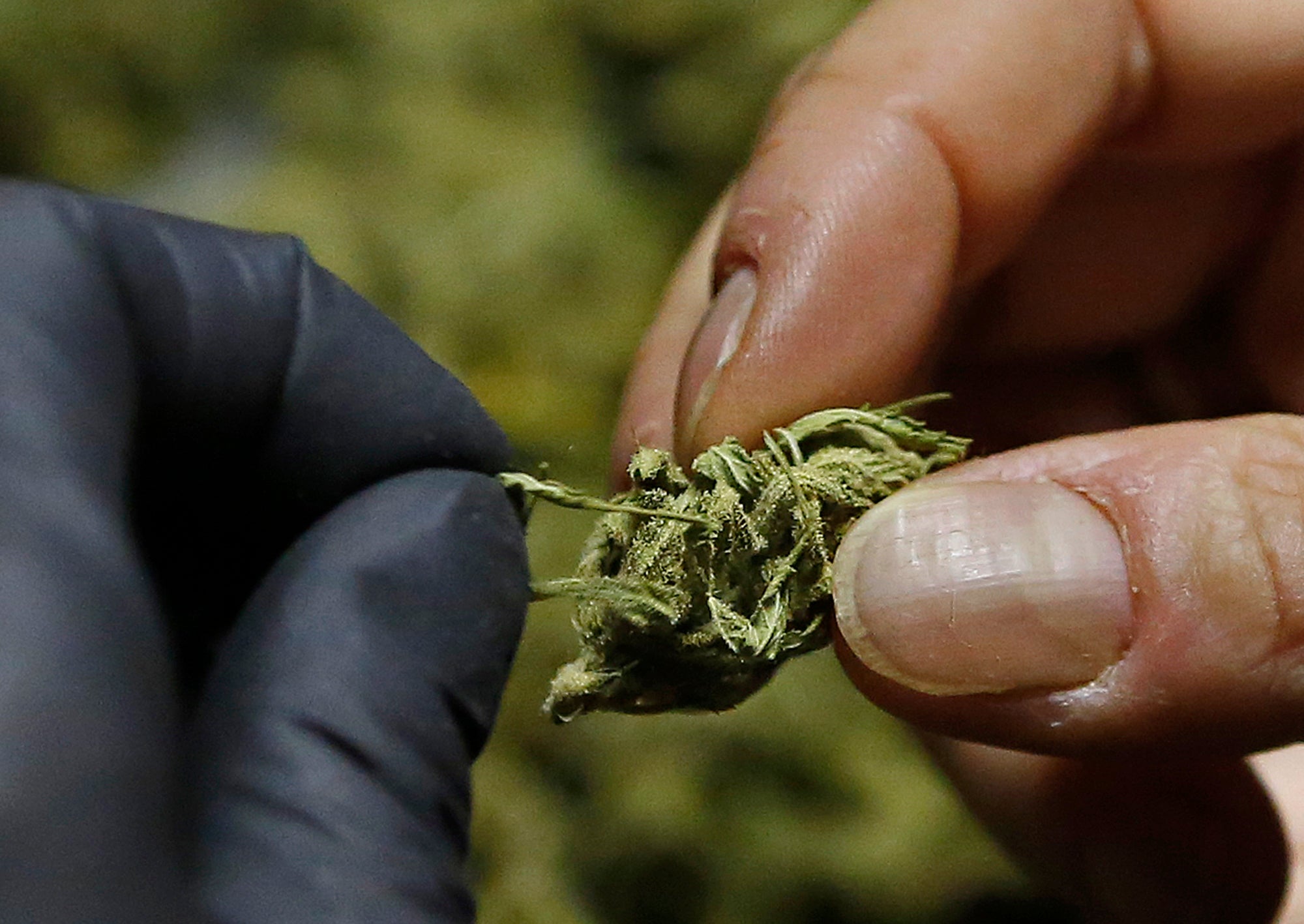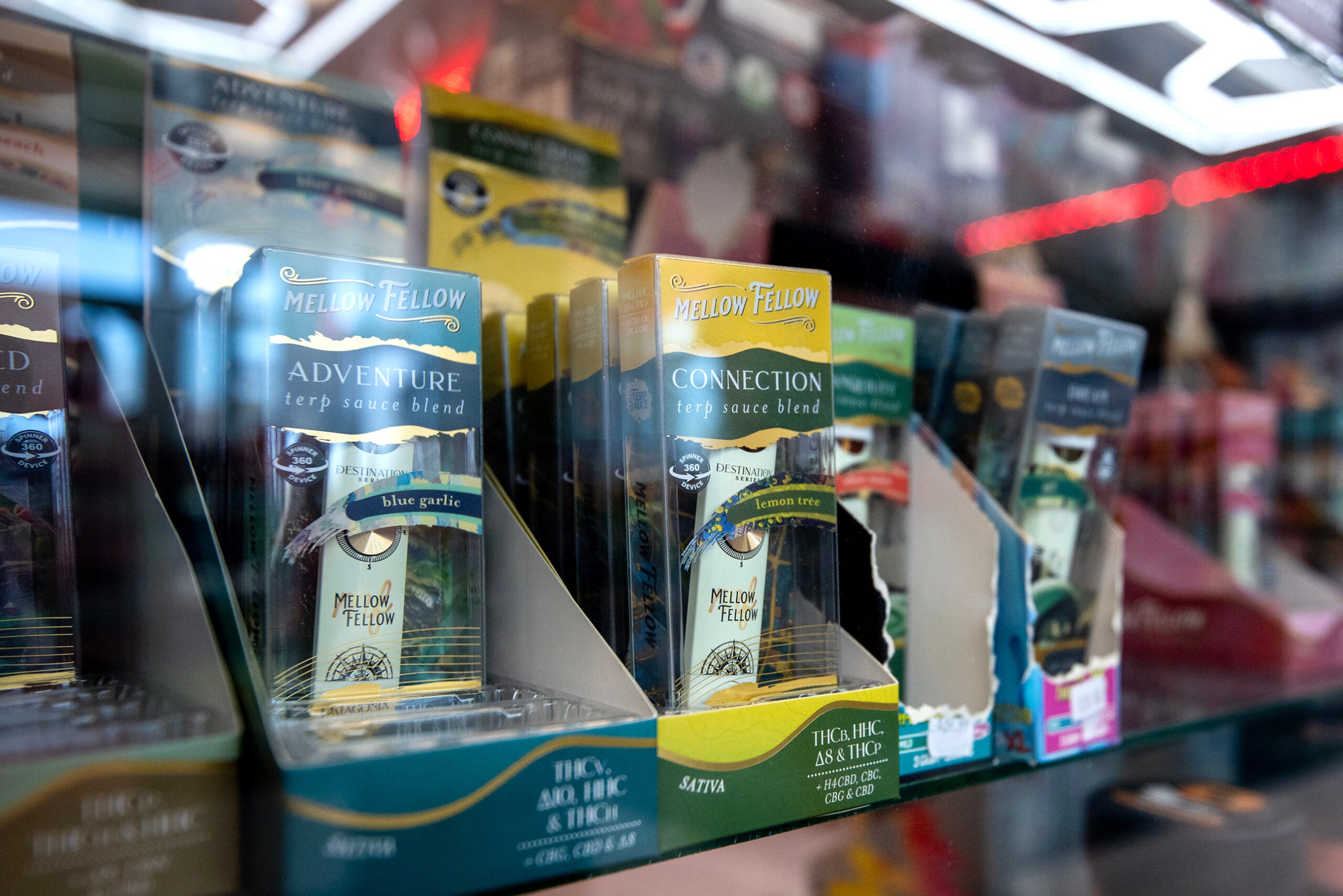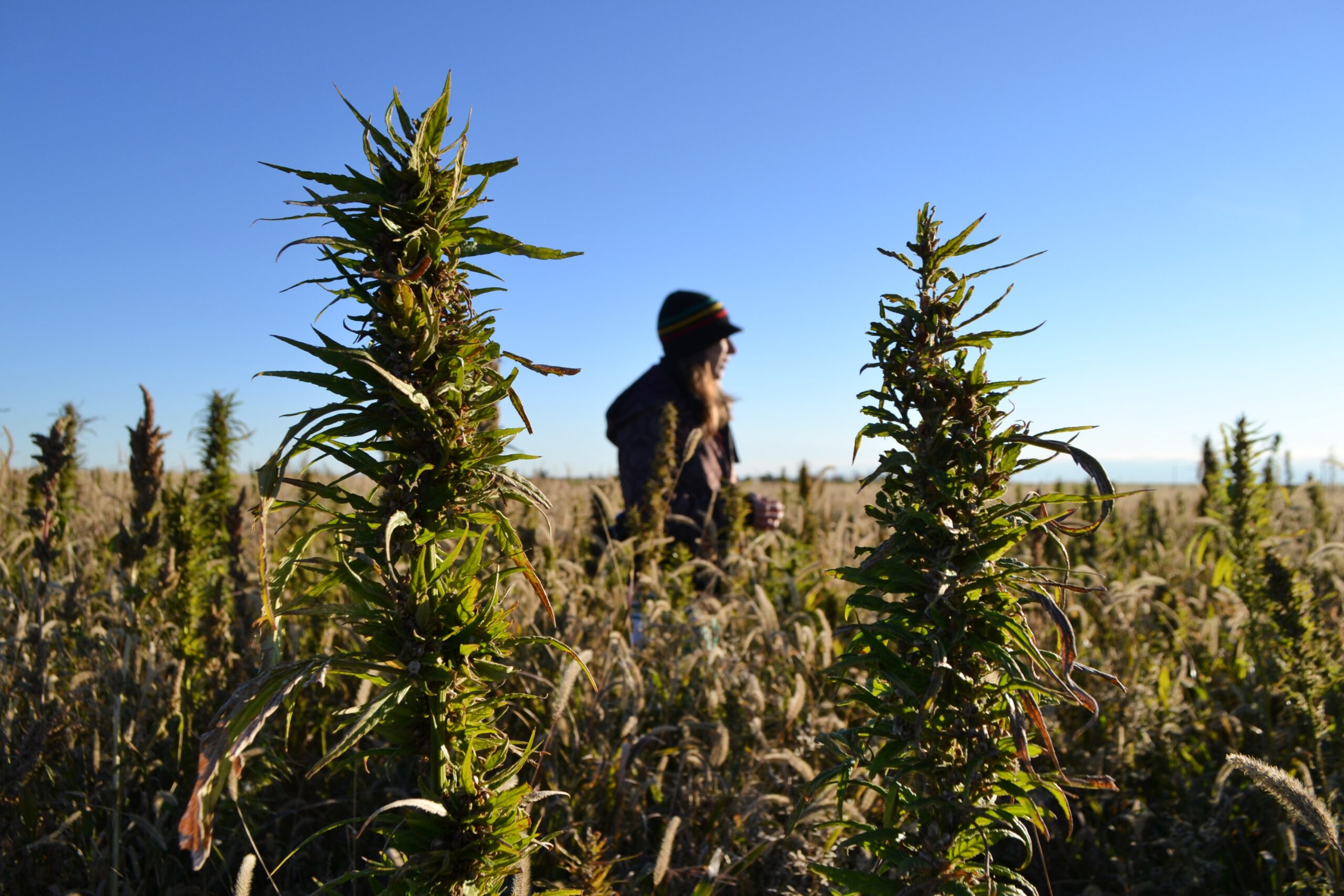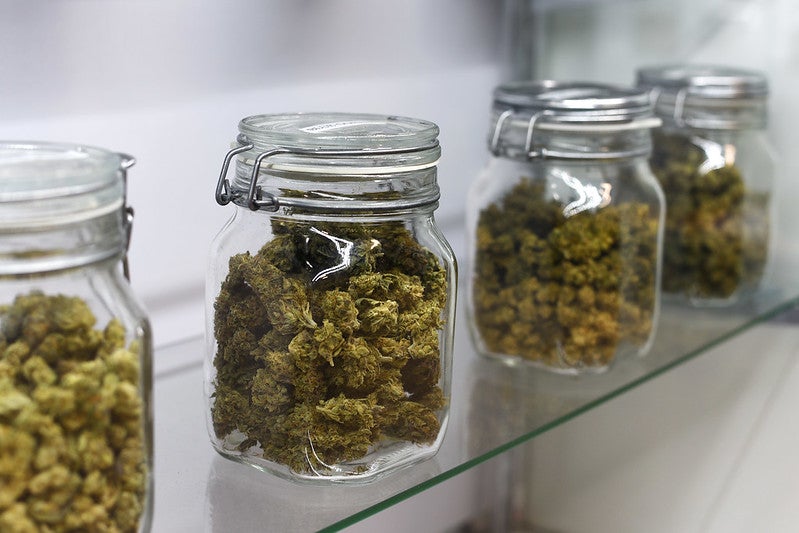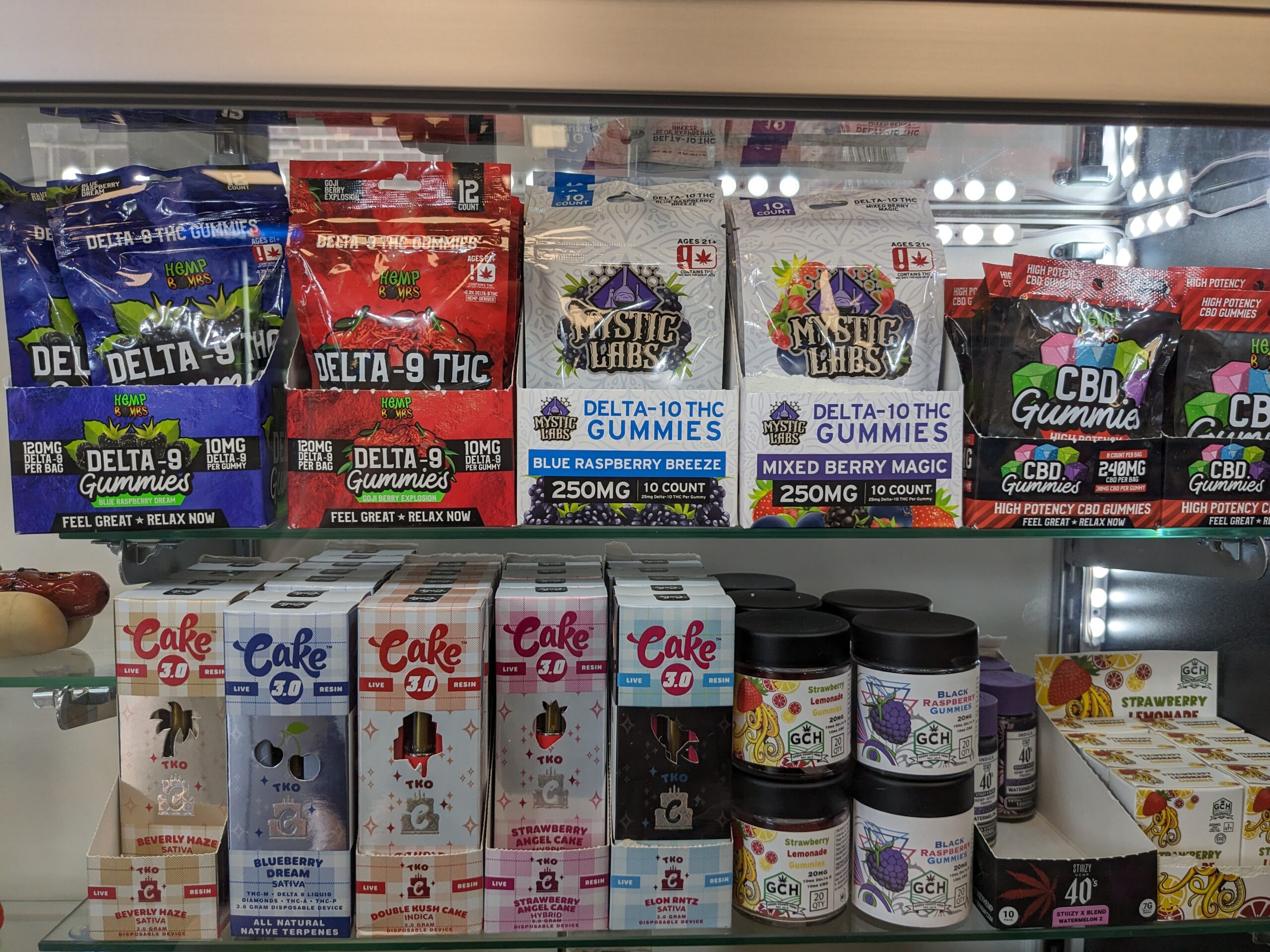The Wisconsin Legislature needs to do a better job clarifying marijuana policies that differ statewide — that’s according to supporters of legalized hemp and cannabis, and a Wisconsin sheriff.
Gov. Tony Evers has proposed legalizing medical marijuana, making possession of small amounts of the drug legal for personal use and allowing people convicted of past marijuana crimes to have them expunged from their record in his proposed state budget.
Some local communities have reduced penalties for marijuana offenses, while others haven’t.
News with a little more humanity
WPR’s “Wisconsin Today” newsletter keeps you connected to the state you love without feeling overwhelmed. No paywall. No agenda. No corporate filter.
States bordering Wisconsin, including Illinois, Iowa, Minnesota and Michigan all already have medical marijuana programs. Wisconsin does not.
Just last week, Florence County, in northeastern Wisconsin, which borders Michigan’s Upper Peninsula passed an ordinance prohibiting all marijuana establishments in response to Michigan becoming the first Midwestern state to legalize recreational marijuana.
“When you’re caught with marijuana in Wisconsin it really depends on who you are, where you’re caught and how much you’re caught with,” said Jay Selthofner, the founder of the northern Wisconsin chapter of the National Organization for the Reform of Marijuana Laws (NORML).
“Our drug unit doesn’t look at possession of marijuana. We’re not looking on the street for the user. But we have three major music festivals that we will cite people if they’re found to be in possession and we’ll probably escort them out of the festival for the day as we would an underaged juvenile drinking,” said Eau Claire County Sheriff Ron Cramer.
“We work very few marijuana cases. Our goal right now in this state is opioids, methamphetamine and the things that are causing major social issue in our communities,” he said.
Cramer said police are waiting for a position paper from Wisconsin Attorney General Josh Kaul to spell out how to approach marijuana cases under state laws because of the confusion.
“Fifteen of our largest cities have decriminalized simple possession, that roughly is 1.5 million to 2 million people in our state,” Selthofner said. “Other counties have taken similar measures. But if you look at the state law, it’s archaic, to basically put somebody in jail for a plant.”
In 2016, Selthofner cites FBI statistics that NORML uses showing there were 16,000 arrests in Wisconsin for possession of marijuana and 1,800 arrests for selling pot.
“It needs to be changed. Especially because we’re surrounded by states that have either decriminalized, have medical marijuana or have recreational cannabis available to Wisconsin people who would travel there,” he said.
Meanwhile, hemp, marijuana’s non-psychoactive relative, is set to expand in its second year of legal production in Wisconsin.
Wisconsin Hemp Alliance attorney Larry Konopacki said more than 2,000 applications have been submitted in 2019 to grow hemp in Wisconsin, more than six times the 300 applications that were submitted in 2018.
“I think it’s just interesting that we’re even talking about hemp and CBD in the same context as marijuana. It’s like a poppy seed muffin and heroin, they come from the same thing,” Konopacki said. “You can’t separate these things. I think from the hemp industry, we wish you could, but you can’t.”
He expects new legislation he’s calling “Hemp 2.0” that will update regulation of the second year of the state’s hemp industry to be introduced this week.
But it’s not expected to address marijuana.
“There are a lot of people out there who right now are perfectly legal in what they’re doing, but it’s very hard to distinguish between the legal and illegal activity. That of course would be solved if legalization (of marijuana) would occur,” Konopacki said.
“That’s a big policy and political question as to whether within our state we’re ready to do that. At this point, there’s strong forces that say ‘no’ and there’s strong forces that say ‘yes,’” he added.
The most recent Marquette University poll taken in January showed 59 percent support legalizing marijuana in Wisconsin and 35 percent are against legalization.
Wisconsin Public Radio, © Copyright 2026, Board of Regents of the University of Wisconsin System and Wisconsin Educational Communications Board.
